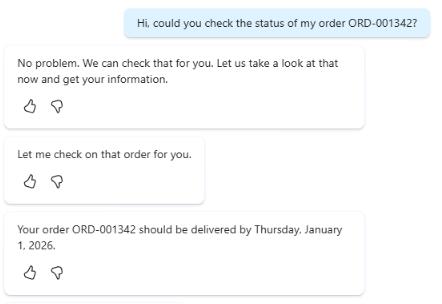Task 05: Use code view and Power Fx
Introduction
To meet specific interaction requirements for Contoso’s customer service scenarios, advanced customization may be necessary.
Description
In this task, you’ll use the code view in Copilot Studio and employ Power Fx formulas to implement advanced conversational logic beyond default node capabilities.
Success criteria
- You’ve successfully utilized code view and Power Fx formulas.
- You’ve confirmed that advanced conversational logic behaves as intended.
Key tasks
01: Explore the code editor
-
On the command bar, select the ellipses (…) and then select Open code editor.

-
The code editor displays YAML code for the topic.
YAML is an acronym for “YAML Ain’t Markup Language.” It’s a human-readable data serialization format often used for configuration files and data exchange between languages with different data structures.
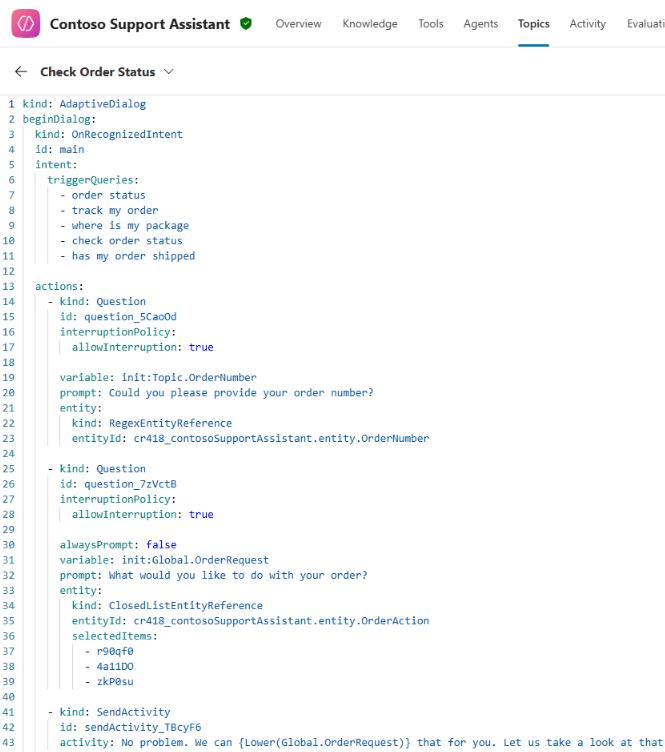
-
On the command bar, select Close code editor after exploring the code.

02: Use Power Fx to modify how the date displays
-
Locate the Condition branch for Check.
-
Below the Condition node, select +, select Variable management, and then select Set a variable.
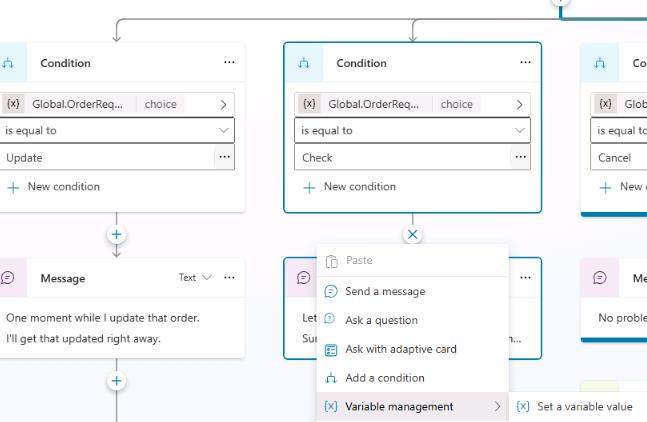
-
Select Create a new variable.
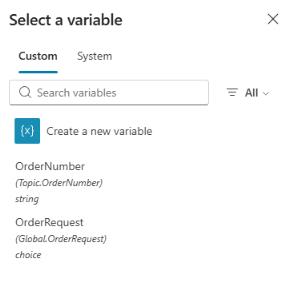
-
Select the Var1 variable. Then, in the Variable properties pane, set Variable name to
OrderDeliveryDate.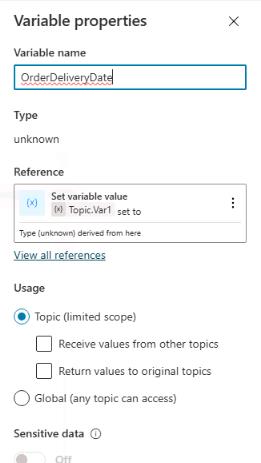
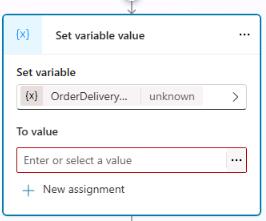
-
In the To Value field, select the ellipsis (…), select the Formula tab, and then enter the following function:
Text( DateAdd( Now(), 2, TimeUnit.Days ), DateTimeFormat.LongDate )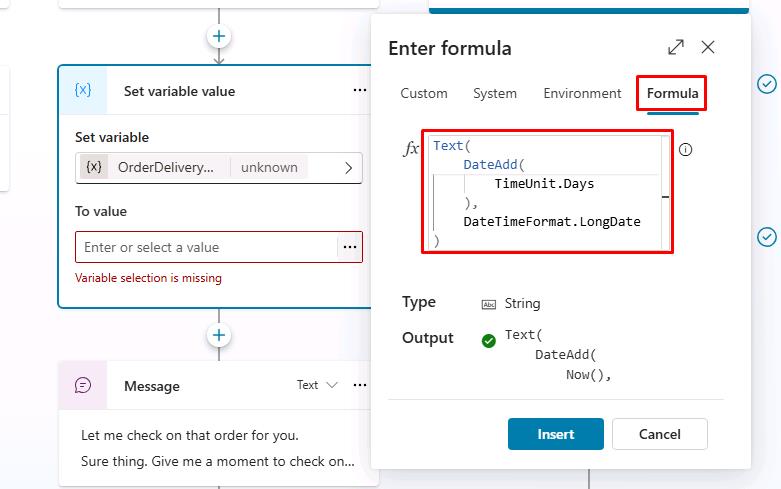
The function takes today’s date and time (for example, 5/31/2026 8:00 AM), adds two days to it, and then formats the date in a long date format (for example, Saturday, June 2, 2026).
-
Select Insert.
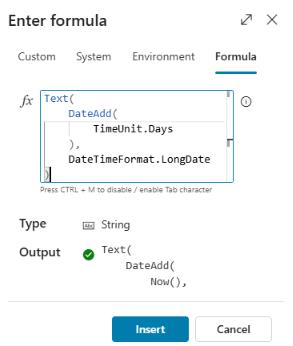
-
Add a Message node to the bottom of the Check branch, below the existing Message node.
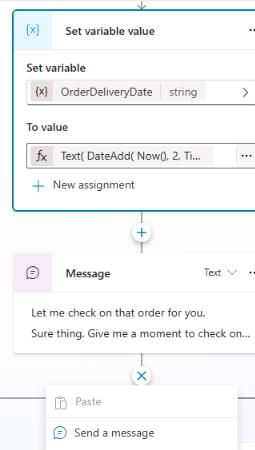
-
Enter the following message:
Your order {Topic.OrderNumber} should be delivered by {Topic.OrderDeliveryDate}.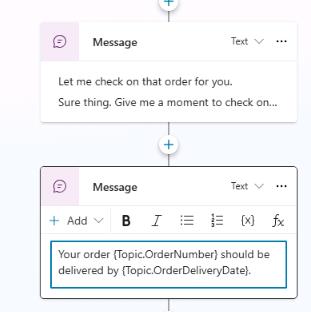
-
On the command bar for the agent, select Save.
-
On the command bar for the agent, select Test.
-
In the upper-right corner of the Test your agent pane, select Start new test session to start a new conversation.

-
Submit the following prompt and review the response:
Hi, could you check the status of order ORD-001342?